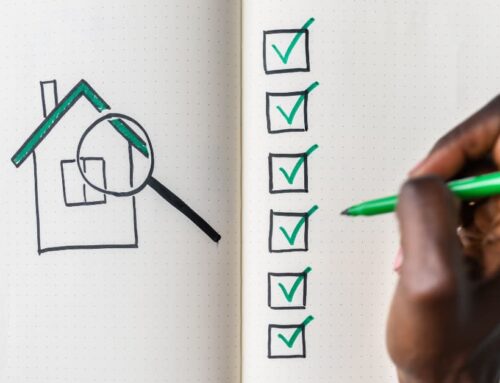Losing a loved one is an emotionally difficult time, and navigating the legal matters that follow can feel overwhelming. Among the many questions that arise, one common query is, “What is a probate lawyer?”
Understanding their role and how they assist with the probate process can provide clarity and peace of mind. This guide explains the role of probate lawyers, the probate process, and how they can help simplify estate administration.
What is a Probate Lawyer?
A probate lawyer is an attorney who assists with the legal process of settling a deceased person’s estate. They provide guidance to executors, administrators, and beneficiaries, ensuring the deceased’s assets are distributed properly while resolving any legal or financial issues that arise.
Key responsibilities of a probate lawyer include:
- Advising on the legal steps required to administer an estate.
- Representing executors or administrators in court during probate proceedings.
- Ensuring the deceased’s wishes are carried out according to their will or state law.
- Assisting beneficiaries in understanding their rights during the probate process.
Probate lawyers also address complex issues like disputes among heirs, unclear wills, or debts owed by the estate. Their guidance helps streamline the process and ensures all legal obligations are met.
What is the Probate Process?
The probate process is the legal procedure for distributing a deceased person’s assets and settling their debts. This process is typically overseen by a probate court and involves several key steps:
- Filing the Will with the Court: The executor submits the deceased’s will to the probate court. If no will exists, the court will initiate intestate probate, distributing assets according to state law.
- Appointing an Executor or Administrator: The court formally appoints an executor (if named in the will) or an administrator (if no will exists) to manage the estate.
- Identifying and Valuing Assets: The executor or administrator must locate all estate assets, including real estate, bank accounts, investments, and personal property. These assets are then appraised to determine their value.
- Paying Debts and Taxes: Outstanding debts, funeral expenses, and estate taxes must be paid from the estate before any assets are distributed to beneficiaries.
- Distributing Assets to Beneficiaries: Once debts and obligations are settled, the remaining assets are distributed to beneficiaries according to the will or state law.
The probate process can be straightforward or complex, depending on the size of the estate, the existence of a will, and any disputes that may arise. Having a probate lawyer by your side can help ensure everything is handled correctly and efficiently.
Do You Need a Probate Lawyer?
Not all estates require legal representation, but a probate lawyer can be invaluable in many situations. Consider hiring a probate lawyer if:
- The estate is large or complex: Estates with multiple properties, business assets, or significant investments often require careful legal oversight.
- There is no will: If the deceased did not leave a will, the estate must be distributed according to state intestacy laws, which can be confusing.
- Disputes arise among heirs or beneficiaries: Family disagreements can complicate the probate process, and legal guidance is crucial to resolving disputes fairly.
- Creditors are involved: Managing debts and potential claims against the estate often requires a lawyer’s expertise.
In many cases, a probate lawyer helps avoid costly mistakes, reduce stress, and ensure the process is completed as smoothly as possible.
How Does a Probate Lawyer Help?
Probate lawyers provide a range of services tailored to the needs of executors, administrators, and beneficiaries. Some of their key roles include:
- Legal Document Preparation:
Filing necessary paperwork with the probate court, including the will, petitions, and inventories. - Court Representation:
Appearing on behalf of the executor or administrator during court proceedings to ensure compliance with state laws. - Estate Tax Guidance:
Advising on federal and state tax obligations related to the estate and ensuring timely payments. - Asset Distribution:
Ensuring assets are transferred to beneficiaries in accordance with the will or intestacy laws. - Dispute Mediation:
Resolving conflicts among heirs, beneficiaries, or creditors to minimize delays and additional costs.
By managing these responsibilities, a probate lawyer reduces the burden on executors and helps avoid common legal pitfalls.
Probate Lawyers vs Estate Planning Attorneys
While probate lawyers focus on estate administration after death, estate planning attorneys assist individuals in preparing for the future. The two roles complement each other:
- Probate Lawyers: Handle the legal process of settling an estate, whether or not a will exists.
- Estate Planning Attorneys: Help individuals create wills, trusts, and other documents to simplify or avoid probate.
Working with both types of lawyers ensures comprehensive estate planning and efficient administration, protecting both your wishes and your beneficiaries.
How to Choose the Right Probate Lawyer
Choosing the right probate lawyer is essential for a smooth and stress-free process. Here are some tips to guide your decision:
- Look for Relevant Experience:
Seek a lawyer with a strong understanding of state-specific probate laws and experience handling estates similar to yours. - Check Reviews and Referrals:
Look for recommendations from trusted sources or read client reviews online to gauge the lawyer’s reputation. - Ask the Right Questions:
During your consultation, ask:- What is your experience with estates of this size?
- How do you handle disputes among beneficiaries?
- What is your fee structure?
Selecting a probate lawyer who aligns with your needs ensures the process will be managed with care and attention to detail.
Common Myths About the Probate Process
The probate process is often misunderstood. Here are some common myths and the truth behind them:
- Myth: “You don’t need a lawyer for probate.”
- Reality: While simple estates may not require legal representation, most cases benefit from a lawyer’s knowledge of state laws and probate court requirements.
- Myth: “Probate always takes years.”
- Reality: The length of probate varies, but with proper legal guidance, the process can often be completed in months.
- Myth: “Probate is only for estates without a will.”
- Reality: Even when a will exists, the estate may still go through probate to validate the will and oversee the distribution of assets.
Understanding these myths can help set realistic expectations for the probate process.
When Probate is Avoidable
In some cases, the probate process can be avoided through effective estate planning. Strategies include:
- Establishing a Living Trust: Assets placed in a trust pass directly to beneficiaries without going through probate.
- Naming Beneficiaries: Designating beneficiaries on accounts like life insurance or retirement funds ensures direct asset transfer.
- Joint Ownership of Property: Joint tenancy allows property to transfer to the surviving owner without probate.
A probate lawyer can advise on these strategies to simplify future estate administration for your loved ones.
What Happens If You Don’t Hire a Probate Lawyer?
While it’s possible to navigate probate without a lawyer, it can be risky, especially for larger or more complex estates. Here’s what could happen without legal assistance:
- Missed Deadlines: Probate involves strict deadlines for filing documents and settling claims, and missing these deadlines can delay the process or result in penalties.
- Legal Mistakes: Misinterpreting state laws or probate requirements can lead to costly errors, including disputes among beneficiaries or challenges from creditors.
- Increased Stress: Managing probate on your own adds emotional and administrative stress during an already difficult time.
Hiring a probate lawyer ensures the process is completed accurately and efficiently, reducing potential complications.
How Long Does the Probate Process Take?
The length of the probate process varies depending on factors such as the size of the estate, state laws, and whether disputes arise. On average:
- Simple Estates: 3–6 months.
- Complex Estates: 6–12 months or longer.
- Disputed Estates: Cases involving lawsuits or family disagreements can take years to resolve.
A probate lawyer helps expedite the process by ensuring all paperwork is filed correctly and court requirements are met on time.
What Happens When There is No Will?
When a person passes away without a will, their estate is considered “intestate.” In this situation, the probate court oversees the distribution of assets based on state intestacy laws. This often means:
- Distribution to Close Relatives: Assets typically go to a surviving spouse or children first, followed by extended family members if no immediate heirs exist.
- No Control Over Distribution: Without a will, the deceased’s preferences for asset distribution cannot be honored.
- Increased Probate Complexity: Intestate estates often involve more legal hurdles, making a probate lawyer’s assistance even more critical.
A probate lawyer can guide families through the intestate probate process and ensure all legal requirements are met.
Kelly Legal Group: Assistance with the Probate Process
Dealing with the probate process can be complex and emotionally draining, but you don’t have to face it alone. At Kelly Legal Group, we provide clear, reliable guidance for executors, administrators, and beneficiaries, ensuring every aspect of estate administration is handled smoothly and in compliance with the law.
Whether you need help filing legal documents, resolving disputes, or understanding your role in the process, our team is here to simplify the journey and protect your interests.
Don’t let the probate process add more stress during an already challenging time. Take the first step toward peace of mind. Call Kelly Legal Group today to schedule a consultation and let us guide you through the next steps with confidence.






